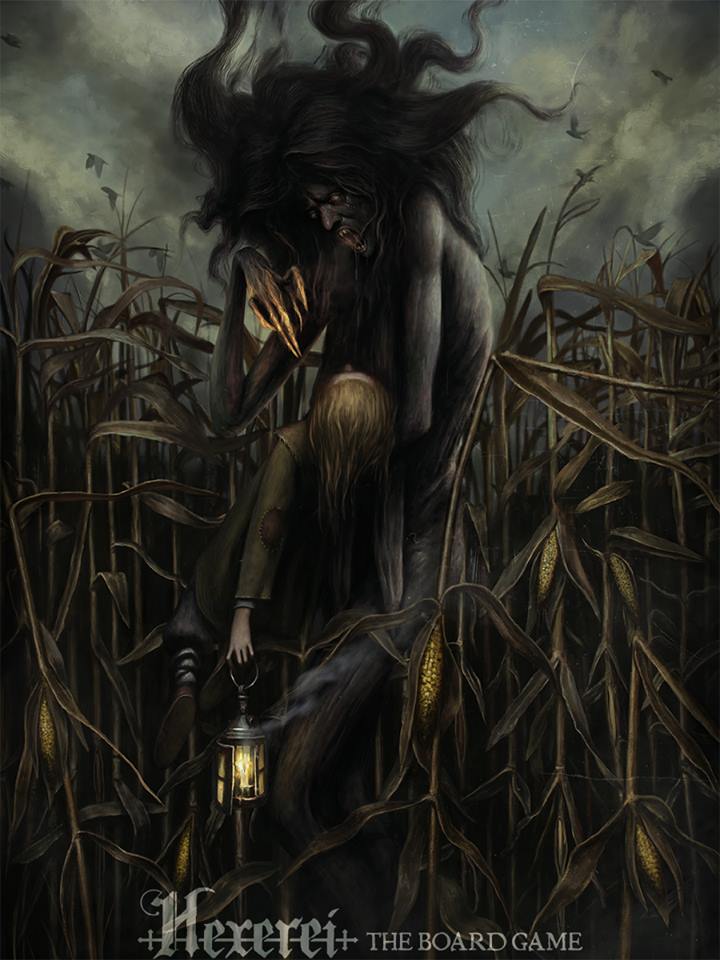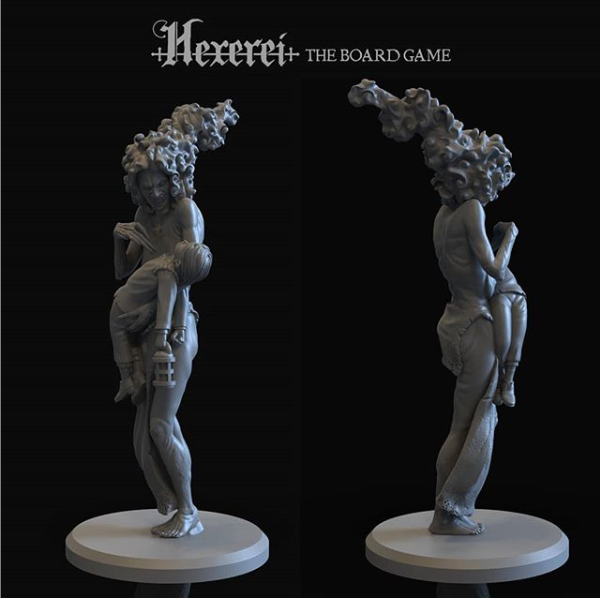Roggenmuhme
Don't stray from the path.
General Information
The Roggenmuhme is a Coven Model, and belongs to the Creature type. Creatures are summoned by expending Goetia. This horrible crone is easily called on the battlefield and is certainly not one of the strongest fiends in a fight, yet she balances that relative weakness with some of the most useful tactical powers in the Coven's arsenal. While in the innermost Region, her location can't be crossed by anyone, not even the Austringer, and that means she is impervious to attack, but more importantly she can block roads better than any other Coven Model. That is certainly a good way to protect a Witch! She's also capable of dragging away a Hunter to an Abyss, which can be used to divide them up and break Patrols. A Coven player would be very foolish indeed to waste such an asset for the mere chance of wounding or killing a Hunter.The Legend
The Roggenmuhme is just one of a wide spectrum of folk tales about "Feldgeister". These mythical beings are claimed to be remnants of ancient pagan rites appeasing spirits living inside crops. We always say that about fertility and bounty-- they are kind of hot topics for heathen gods, and farming communities are always said to respect quaint superstitions geared toward the well being of each year's harvest. Even in Early Modern Europe such rites and beliefs were mostly thought of as silly, but war, especially religious war, drives even the most rational to their wits' end. And then the folk tales take a darker tone. In 17th century the Roggenmuhme is no more a goddess, she's a monster used as a very stern warning against deviant behaviour: wandering off, being tardy out in the fields doing God knows what, or just being a misbehaving child would always attract the attention of such an evil spirit. These Feldgeister took the shape of old women like the Roggenmuhme, of stern men not wholly unlike the ancient god Wotan, or of wolves, bears, and even members of reviled ethnicities (yeah, they would go there without qualm) and they would come to harry the wayward. In three decades of running away from roaming and half-starved armies, the concept of being lost and eaten would take on a new frightening dimension for the poorest inhabitants of the Holy Roman Empire.Portrait

by Igor Krstic
Gifts
The Devil's boon manifests according to the nature of each minion.Dark Mother
The Roggenmuhme can draw Orphans from a Sanctuary, or run towards unprotected Orphans, and eat them. Yeah, she's evil, just face the music, ok?Feldgeist
If this Model is in the Center Region, she is considered as "unconnected" to any other location. Her the fields she roams do not belong to this reality anymore, but she can be summoned at a Cromlech, if a Hunter is lucky enough to find one.Tactics
A Coven Model is always frightening and useful in a fight.Snatch
While the Roggenmuhme is famous for waylaying travelers and children, she will do so with a Witch Hunter rather gladly, which is a tremendous tactical advantage for the Coven.Critical Hit
This monster drains you. When you are wounded, you will bleed more.Remove these ads. Join the Worldbuilders Guild










Comments